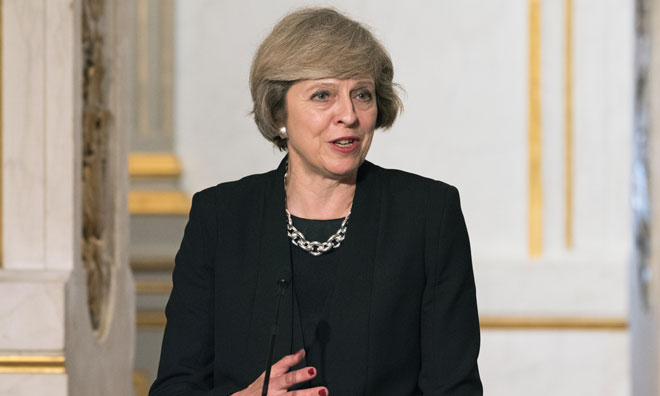Airport Security Week: Theresa May to propose UN crackdown on airport security
- Like
- Digg
- Del
- Tumblr
- VKontakte
- Buffer
- Love This
- Odnoklassniki
- Meneame
- Blogger
- Amazon
- Yahoo Mail
- Gmail
- AOL
- Newsvine
- HackerNews
- Evernote
- MySpace
- Mail.ru
- Viadeo
- Line
- Comments
- Yummly
- SMS
- Viber
- Telegram
- Subscribe
- Skype
- Facebook Messenger
- Kakao
- LiveJournal
- Yammer
- Edgar
- Fintel
- Mix
- Instapaper
- Copy Link
Posted: 19 September 2016 | Roy Manuell, Digital Editor | 1 comment
Theresa May, the British Prime Minister, will announce in New York at the UN summit plans to inaugurate the first United Nations Security Council resolution on aviation security…


As part of Airport Security week looking ahead to Airport IT & Security that lands at London Heathrow on the 27th-28th September, International Airport Review will be looking in detail at all things security, inarguably one of the industry’s hottest topics at the moment.
Follow us throughout the week as we discuss news stories, issues and challenges facing airports with exclusive commentary from industry experts.
The Prime Minister’s proposed plan calls on the richer global nations to lead the way in the development of new technology to tackle the issue of aviation security. Downing Street believes the measure would then spur poorer nations to improve their systems correspondingly.
Speaking ahead of the trip to New York, Ms May announced that she wanted the UK to lead the way in improving existing security systems following attacks across the world.
“This historic UN resolution will galvanise international action to improve security measures”
“In the face of an increasing terrorist threat, it is vital that we work with other countries to keep our people safe,” she said.
Her plans come in a five-step call to action:
- The International Civil Aviation Organisation (ICAO) must increase control measure on whether countries comply with international standards for airline security
- Nations must enhance screening, security checks and facility security
- Developed countries have a duty to provide technological help and expertise to poorer nations
- New technology should be developed to detect explosives and other threats
- Airlines must offer passenger data to aid authorities in the detection of terrorists
Over the past couple of weeks, British diplomats have been working hard to gain the support of the other four permanent member of the UN Security Council, China, France, Russia and the US, to fully get behind the proposal.
Theresa May said: “This historic UN resolution will galvanise international action to improve security measures – and focus support on countries more vulnerable to terrorist attacks.
“The UK is already sharing our expertise in this area and the new resolution will be another step forward in the fight against terrorism, helping to make it safer for British tourists travelling by air.”














This proposal needs to be commended and supported.
What is further required is :
1. A list of “developed” countries willing to help the “developing” or ‘Under developed” countries.
2. The type of support being offered
3. The cost (cash or in-kind) for the support offered.
It should be noted that while may of the developing nations are keen to address the security problems, there is, more often than not, the absence of available manpower, or knowledge of source from which to obtain answers for the problems encountered.
Access to information highlighted at 1-3 will, no doubt, greatly assist.